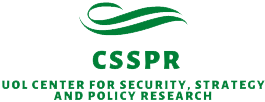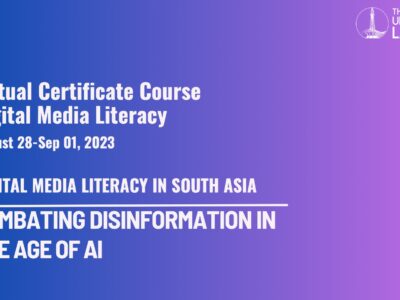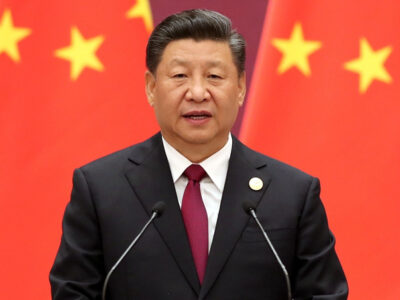January 7, 2021: Remarks by Dr. Rabia Akhtar, Director Center for Security, Strategy and Policy Research, University of Lahore at the webinar organized by Pakistan’s Embassy in Vienna, Austria to commemorate the Kashmiris’ Right to Self-Determination Day.
Today we have gathered to remind the premier international organization, the United Nations, to fulfill its commitments to the people of Kashmir. That the right to self-determination is an inalienable one, cannot be emphasized enough. I however, would make two points today, that I feel Pakistan must take into account while fighting the case of Kashmir.
First, invoking Sun Tzu’s ‘know thy enemy’ adage, we need to understand who we are dealing with, and rejig our policy toolkit accordingly. As we speak, UNSC resolutions calling for respecting Kashmiris’ right to self-determination, are being flouted with impunity by India. The brazenness does not and will not end there. An Indian leadership that is infested with an ideology of religious superiority, is colonizing the even-otherwise annexed and occupied Kashmir, and has made its intentions very clear about what it wants to do next. Our Prime Minister has repeatedly alluded to how different India has become under Modi while drawing correct comparisons between RSS and Nazi Germany. He is right on both counts. But does the world know what we and Kashmiris are dealing with? Perhaps, yes. Then why don’t they care enough to shame Modi? The structure of global politics, unfortunately, is such that New Delhi will be given a free-pass. We have to therefore navigate this very structural reality. Paving the way for Kashmiris’ right to self-determination goes against the very ideals that India stands for. Imbued with fantasies of Akhund Bharat, India vies for territorial expansion. For New Delhi, Kashmir, the land, matters. The Kashmiris incarcerated in IIOJK are, thus, the victims of India’s project ‘land-grab’. At present, Pakistan is dealing with an irrational, hawkish India that does not let rationality do the talking. While we rightly say that war is not an option which we should use, we must also understand that talking to the RSS-led India, today and later, will be fruitless, to say the least. Thus, to clinch self-determination from the jaws of a revanchist India and a UN that is dependent on its member states , is a tall order, requiring consistent, multi-pronged efforts on our part.
We must continue broaching the concerns that emanate from India’s unlawful, illegal actions, with the UN, especially the P5 of the UNSC. Regardless of the difficulties, our diplomatic blitz should be geared towards convincing the UN that its credibility as the highly-touted guarantor of peace and stability is at stake, not because of Pakistan, but because of India. This has to be supplemented by advocacy and perception-management campaigns at the global level. In this day and age, all this cannot be done without the involvement of people from various segments of society. A liaison with the Kashmiris, who reside in both sides of the Kashmir and the Kashmiri diaspora is of great import here. They need to tell the world their story with our unflinching support.
At a time when it is abundantly clear that, other than fomenting terrorism inside our country, India is using social media as a weapon of war and propaganda, Pakistan can ill-afford not to use social media for effective messaging and strategic communication. Pakistani and Kashmiri think tanks should be strategically engaged to bring in much-needed freshness and vigor into Pakistan’s Kashmir strategy. With India flouting law after law, Pakistan has to make its lawfare robust so as to pin down India where it is most vulnerable. Pakistan has to supplant a reactive approach with a proactive one while making way for an integrated mechanism. Working in silos sans coordination is no longer an option that Islamabad and its strategy on Kashmir can afford.
It would be our loss, if we are unable to pounce on the opportunity that the EU Disinformation Lab report has brought to us. We must not let India get off the hook this time. We have to both expose India and create space for our own narrative. Dominance in information warfare will also have a spin off on Pakistan’s Kashmir story, by way of countering propaganda and fake news related to Kashmir and reaffirming Pakistan’s commitment to the Kashmir cause. Here, it is important to recall that one of the objectives of the Indian disinfo campaign was to create fissures between Pakistanis and Kashmiris.
My Second point is that, the effectiveness of Pakistan’s fight for Kashmir depends upon its ability to enhance its strength and clout within the comity of nations. While geopolitics has impeded the realization of self-determination in Kashmir, the ascendancy and salience of geoeconomics has made conflict-resolution indispensable, to say the least. Pakistan has to take steps that fit into a fast-changing regional and global order which will be dominated by economic integration and connectivity. Pakistan is on the path of reforming its economy in a bid to use its geostrategic location to become a connectivity hub. To break the logjam on Kashmir, Pakistan has to get the pen-holders on its side. Thus, it must continue treading the strategic path of economic diplomacy, something that will place it alongside countries that world powers need. The route is a long, arduous one, but then we must realize that there are no shortcuts and quick fixes to the Kashmir issue.
Today, India stands exposed in front of the world. Also, Modi’s policies have effectively ended support and sympathy for India in IIOJK. Pakistan has brilliantly highlighted the plight of the Kashmiris at every global fora. As of today, Kashmiris need self-determination more than ever. The apex body of global diplomacy has to be reminded of its commitments and obligations towards the Kashmiri people. The UN talks about eradicating poverty and combating climate change. The UNSG has come up with a noble 73-page Disarmament Agenda, for a peaceful and stable world. Pakistan’s diplomacy on Kashmir, especially in and with the UN, must skillfully establish a connection between poverty, climate change, other SDGs, disarmament, and the resolution of the Kashmir dispute. Pakistan has to assert that all these ideal end-states cannot be achieved without a conducive environment, which can only be created through the amicable, Charter-driven resolution of the Kashmir dispute. One of the biggest stumbling blocks in the path to the attainment of these lofty goals, especially in South Asia, is the continued denial of the right of self-determination to the Kashmiri people. Indeed, we rightly enunciate that the international milieu is tough and does not favor us. That said, UNSC resolutions on self-determination are the strongest and clearest ratification of the disputed nature of this conflict. That UN has guaranteed the right to self-determination to the Kashmiris and that is what will continue giving legitimacy to Kashmiris’ freedom struggle against brutal occupiers. That is what we have to continue anchoring our policy in going forward.
I will like to end here with a hope that we take the enemy head on, because law and the people of Kashmir are on our side.
I think we have a golden opportunity. Now that India has taken a seat in the 15-nation United Nations Security Council for the 2021-22 term as a non-permanent member, let’s not let the Indians and the world forget that this largest democracy stands for anything but human rights and is the biggest violator of fundamental values of democracy.
We must build on the momentum that already has been generated since August 5, 2019. The world is watching. The Kashmiris are waiting. It is now or never.










Comments